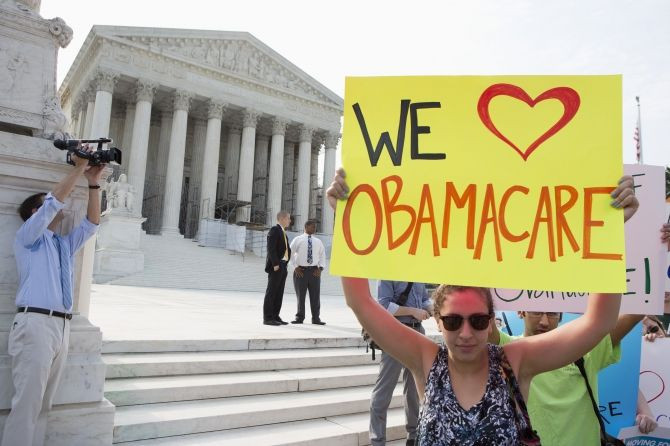Obama Administration Defends Healthcare Reform Contractor Serco, Under Investigation In UK

On Tuesday, the White House defended its decision to award a 12-year contract exceeding $1 billion to government services company Serco Inc. after learning that the contractor's parent company is under review by Britain.
The Obama administration announced earlier this month that the group will help implement the new online health insurance exchange in time for the looming October 1 deadline. The Department of Health and Human Services (HHS) is expected to give final notice of what plans qualify to be sold through the 34 states' exchanges.
"Serco is a highly skilled company that has a proven track record in providing cost-effective services to numerous other (U.S.) federal agencies," said Brian Cook, a spokesman for the Centers for Medicare and Medicaid Services (CMS), the HHS agency overseeing implementation of the new exchanges.
"The selection met all of the requirements for a full and open competition, and the timing enables us to be ready for marketplace open enrollment starting on October 1," he told Reuters.
The outsourcing company, which is a U.S subsidiary of the British Serco Group PLC, will help review applications for subsidized insurance coverage in an effort to relieve federal agencies of the massive paperwork attending the new online exchanges.
Serco has now issued a statement saying that the current investigation involves a minor contract that accounts for less than one percent of the group's revenue.
"There is no reason that the issue with this one contract in the UK will have any impact on the CMS contract or any other operations of Serco Inc," the company said.
The group was placed under review by Britain's chief procurement officer after an audit revealed charges for services that the company does not provide.
Although U.S contractors under foreign parent companies are required to notify the Defense Contract Audit Agency if the parent is being investigated, no such notice was given, according to the Obama administration.
The recent developments represent the latest blow to the administration's signature healthcare reform, which has so far been subject to several lawsuits, public discord, and dilatory measures from political opponents who believe that the core provision — the individual mandate — encroaches on constitutional rights.
So far, courts have ruled in the administration's favor. Notably in June 2012, the Supreme Court upheld the notion that the mandate that individuals buy healthcare or pay a fine is constitutional.



























